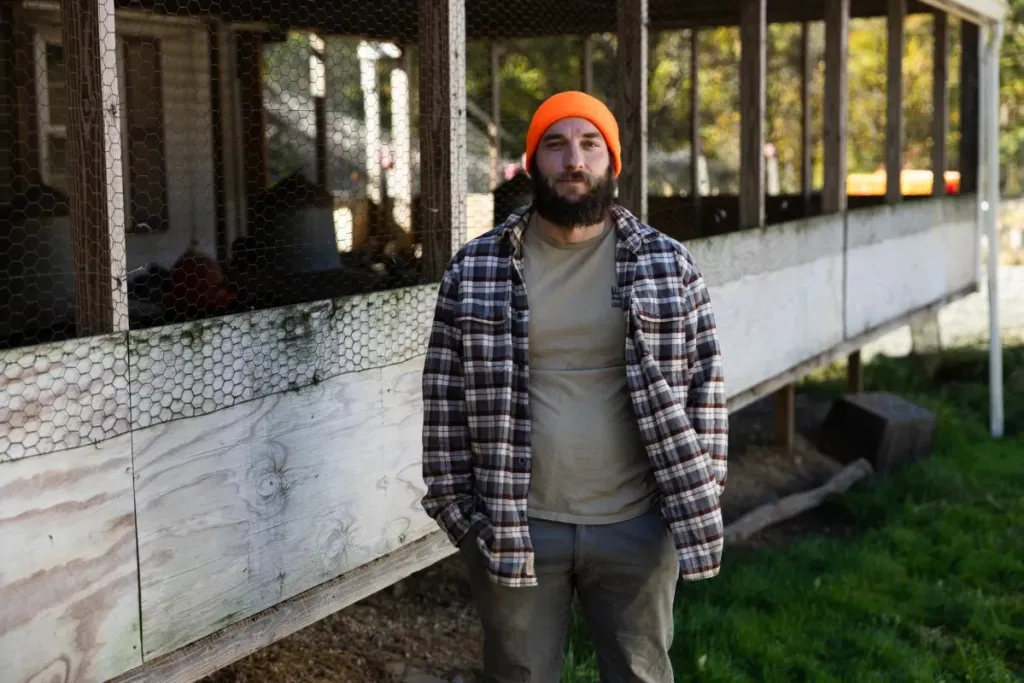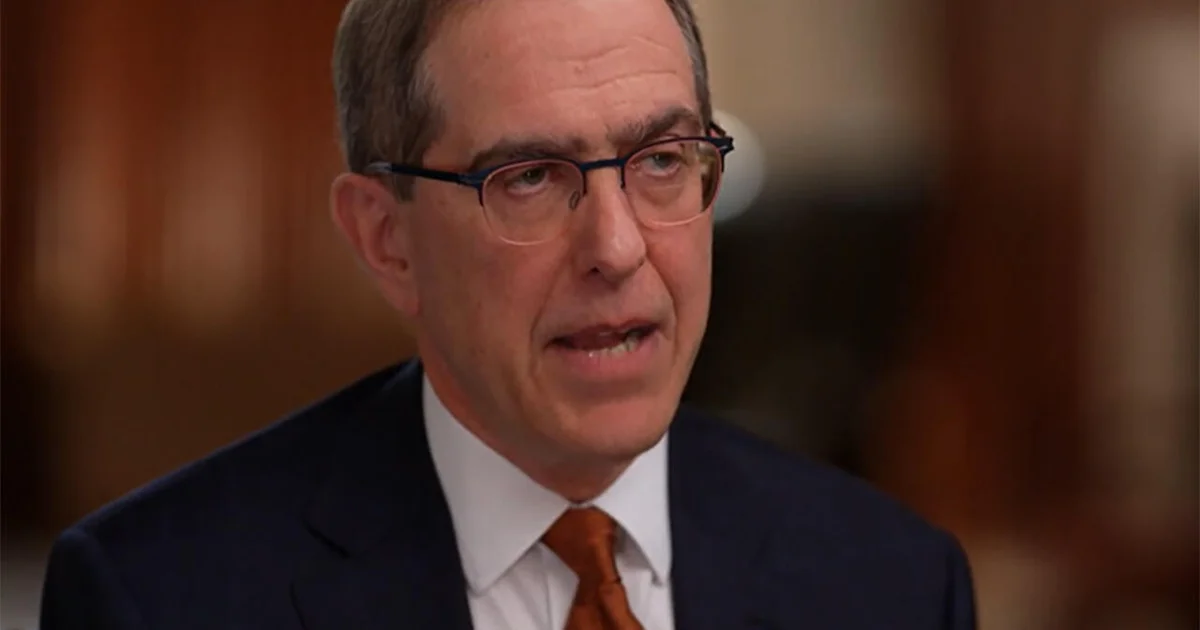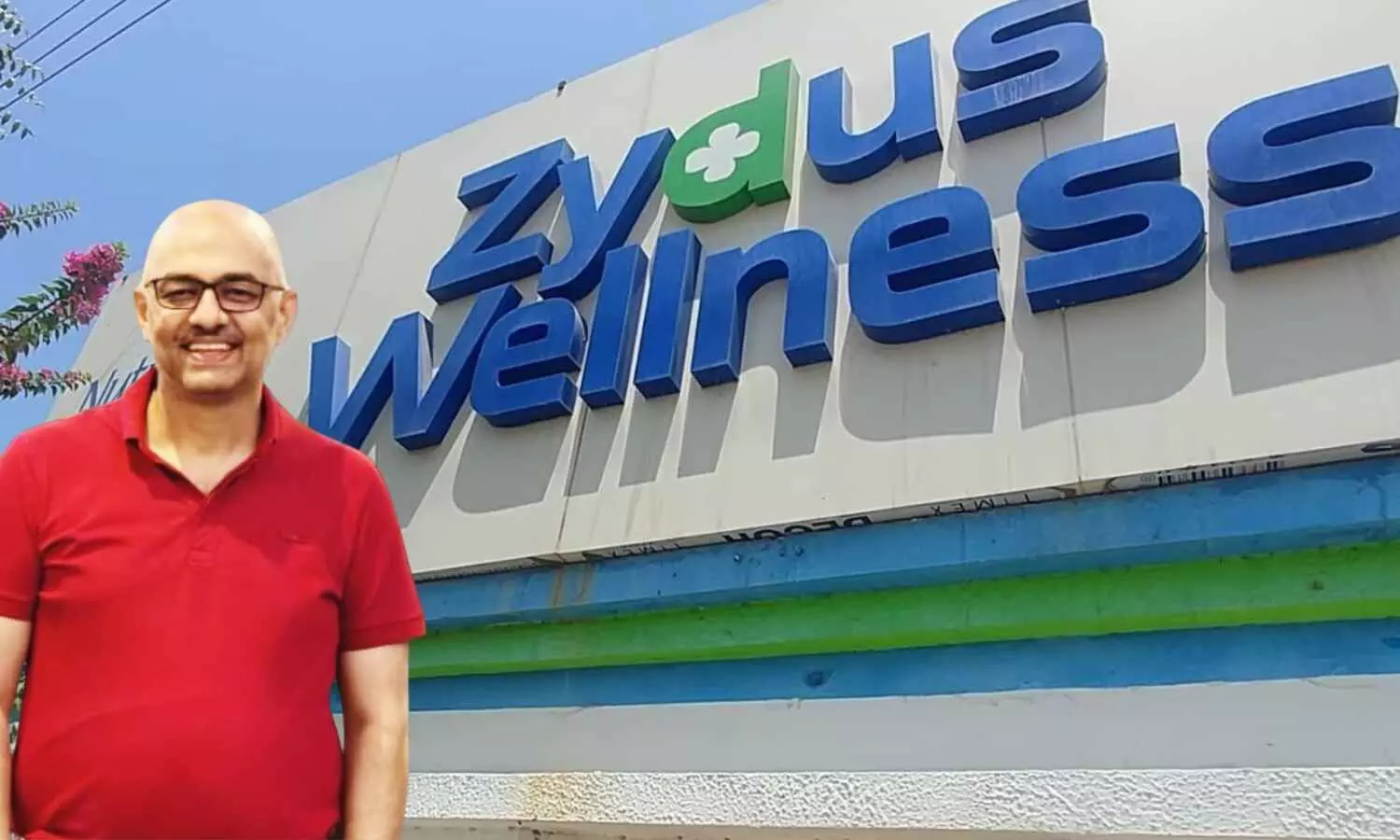Copyright Hartford Courant

Jared McCool’s path to becoming a farmer began — nearly a decade ago — with a dog. The Marine veteran and self-described “city boy” from Waterbury had agreed to go pheasant hunting with friends in the Naugatuck State Forest. It was McCool’s second attempt after an unsuccessful earlier outing, and he was reluctant to try again. But this time his friends brought along Boone, a German short-haired pointer, and McCool said he was inspired by the way the dog and its handler worked together to pursue, shoot and retrieve their quarry. “When I was in the Marine Corps, I felt like I had a purpose,” said McCool, who served from 2008 to 2014 and was deployed in Jordan as part of Operation Enduring Freedom. “What I did made a difference to myself, the people I directly worked with, and part of an overall, bigger mission in some way, shape or form. I felt accomplished.” That same feeling of purpose came back to him on that hunting trip, McCool said. “I wanted to immerse myself in everything that had to do with that dog, which were the game birds that drove her.” The experience led McCool to open Steadfast Farms in 2017. The farm, which he operates with his brother, Aaron, has since grown to become one of the state’s largest producers of game birds such as quail, pheasant and chukar — a type of partridge. The brothers also raise thousands of chickens and hundreds of turkeys each year. In addition, McCool has enlisted the support of other veterans as president of the Connecticut chapter of the Veteran Farmer Coalition, a national organization. The group’s work includes connecting returning vets to careers in agriculture and promoting the work of the state’s existing veteran-owned farms through farm stands, marketing and help applying for grants. In 2023, the coalition launched a website, CTVeteranGrown.org, that serves as a hub for farmers as well as a resource for customers to find produce, meat, honey and other products from local veteran-owned farms. More than 40 farms are currently listed on the site. The project is supported by the nonprofit Connecticut Resource Conservation and Development (CT RC&D) through a multi-year $500,000 grant from the U.S. Small Business Administration. In addition, participating farms get permission to market their products with a specialized “Homegrown by Heroes” label that also features branding from the Connecticut Department of Agriculture. “People usually like to support local. This is just an added benefit that we’re supporting our military veterans,” said Amanda Fargo-Johnson, the agricultural programs director at CT RC&D. The tagline for the program is, “Served then, still serving now.” In 2022 there were 668 farms in Connecticut operated by veterans or people serving in the military, according the U.S. Department of Agriculture. The total value of products produced by those farms was more than $62 million. Fad foods McCool’s first step in launching Steadfast Farms was to purchase several acres of land in Bethlehem that included a ranch house and a small barn where he could protect his birds from predators such as bears and coyotes. At the time, he was working in sales for a technology company — a job that he says paid well but left him searching for more fulfillment. Early on, McCool and a business partner at the time decided to focus on raising quail for their eggs, which were gaining popularity as a “superfood” rich in protein and vitamin B12. Working nights, early mornings and weekends on the farm, McCool said he was able to bring roughly 1,500 game birds to market in the first year. “That was a lot, because I was a city boy,” he said. Still, at that point, it wasn’t enough to turn a profit. But the farm was gaining momentum. McCool expanded into raising chickens and turkeys. Then, after losing his day job during the COVID-19 pandemic, he jumped full time into farming. In 2020, he brought his brother Aaron on board as the farm’s director of operations. That same year, Steadfast Farms received a matching grant from the state allowing the brothers to begin construction of a processing facility for egg production, slaughter and meatpacking. Today, Steadfast Farms raises up to 16,000 birds a year while processing another 21,000 birds raised on farms from as far away as Maine. And they’re making money. In addition to being the only federally inspected poultry slaughter facility in Connecticut, Steadfast Farms has also received its organic handling certification from the USDA. The brothers are currently planning the next expansion of their processing facility, which will allow them to scale up production of pre-packaged products such as chicken sausages, pickled quail eggs and Thanksgiving turkeys. By the end of this year, they hope to be able to ship products nationwide. “I make less money [than working in sales], I work longer hours, I wake up earlier, go to bed later — and I couldn’t be happier,” McCool said. “It is so easy to get up in the morning because you’re just ready to start the next day.” McCool attributed much of the farm’s success to the sustained popularity of quail eggs. The farm’s flock is capable of producing as many as 320,000 eggs a year. “BJs is carrying quail eggs, most of your supermarkets are carrying quail eggs, now you’re starting to see Instagram influencers post about quail eggs,” he said. “Really, the only thing keeping [quail] out of the mainstream right now is not the taste, it’s not the amount of meat, it’s the cost.” Coturnix quail, the type the McCools raise, lay eggs that are about one-third the size of chicken egg. Steadfast Farms sells a dozen quail eggs for $7.25. McCool is also working on breeding his own plump variety of quail that lays fewer eggs but comes with about 50% more meat. In addition to raising birds for their meats and eggs, Steadfast Farms also sells live game birds to other farms, private hunting clubs and state agencies such as the Massachusetts Division of Fisheries and Wildlife to stock during hunting season. Following the brothers around the farm these days is Remi, another German shorthaired pointer that McCool purchased from the same breeder as the dog that inspired his interest in farming nearly a decade ago. His brother is quick to note the significance as he offers Remi a scratch behind the ears. “Everything we do here is because of her,” Aaron said. A helping hand The idea to establish a statewide network of veteran farmers came to McCool in 2019, when he was in the process of applying for a federal grant to install solar panels on the roof of his farmhouse. At the time, he said, he was struggling to navigate the myriad programs available from Connecticut Department of Agriculture to support small farmers. “Connecticut has tons of resources for new and beginning farmers, but it is analysis paralysis, click a link to another link,” McCool said. “You didn’t really know who to talk to, how to follow through to take advantage of these programs.” McCool found a helping hand through Fargo-Johnson and CT RC&D’s Farm Up program, which offers one-on-one counseling and support services to small farmers and agricultural businesses. “Amanda was so good at what she did with the solar I was like, ‘Amanda, it would be great if, like, I had a you to help me navigate all the Department of Agriculture programs,” he recalled. As a result of those conversations, RC&D expanded its Farm Up program to include assistance that was specifically tailored to veteran farmers. Fargo-Johnson said that one of the biggest hurdles facing veterans seeking a start in the industry is that, for the most part, they are not inheriting farmland from their parents or grandparents. ‘They’re first-generation farmers trying to figure out, you know, where can I farm?” Fargo-Johnson said. “They don’t walk into a farm family who says, ‘Great, take over the business.’ So that’s really a challenge, kind of setting their anchor and finding where they can grow their business, their family, everything.” While McCool said that Farm Up offered vital logistical support for veteran farmers, he still felt there was a need for an organization that could provide the sense of “camaraderie” that he had felt during his military service. After doing more research online, McCool said he came cross the Veteran Farmer Coalition, which was opening up chapters in more than a dozen states across the country. Again working with Fargo-Johnson and other local veterans, he helped launch the first Connecticut chapter in 2022. In addition to monthly meetings, McCool said the group hosts quarterly gatherings and messaging groups across various platforms like Facebook, Instagram and WhatsApp where members can find social interaction or a helpful bit of advice. “What we find is, yes, veterans want camaraderie, but especially the ones that farm or run businesses, we’re all always busy,” McCool said. As a result of the resources that have been made available through RC&D and the Farmer Veteran Coalition, the number of veterans who received farm transition grants from the Connecticut Department of Agriculture went from four in 2024 to eight so far this year. “We’re actually seeing the growth of this community happen,” Agriculture Commissioner Bryan Hurlburt said. “There’s a lot more attention… from media, but also from other farmer veterans who realize that it’s not just a social group of people with a shared experience, but it’s a business relationship group as well that can help support them in their business development.” Clearing a ‘path’ In their latest initiative, McCool and the Farmer Veteran Coalition are working again with RC&D to launch program called “Path to Victory” that pairs returning veterans with more experienced farmers for a longer mentorship period. The program is being funded through a $50,000 grant from the Connecticut Department of Agriculture that was awarded in 2024. Steven Thompson, the owner of Thy Neighbors Farm in Torrington, is helping to lead that effort. Thompson, who served as a scout sniper in the U.S. Marine Corps, began farming in 2020 and currently grows vegetables along with a sheep flock that he grazes on nearby solar fields. Other mentorship opportunities are also available for veterans interested in beekeeping, maple syrup production, growing cut flowers and other types of agriculture, he said. “If any veteran in the state of Connecticut is interested in farming, right now is the time,” Thompson said. “Even if they’re going to start something small on the side, not do it full time, if they want to get something started or think maybe in the future they do, it would be very foolish not to capitalize on the opportunities available right now.” Since opening Steadfast Farms, McCool said he has employed four veterans, none of whom are still working there. That experience, he said, has opened his eyes to the different paths that working on a farm could lead to for other returning veterans. “I found farming as being such a successful and consistent process of healing and having a purpose, and that transition from the military back to civilian life, it checked all the boxes for me,” McCool said. “The veterans that have come through here, I always expected them to stay here like it would check all the boxes for them, but I learned that that wasn’t the case,” he continued. “I might just be a stop on their recovery or their understanding of what the next chapter is in their life after service.” John Moritz is a reporter for the Connecticut Mirror. Copyright 2025 @ CT Mirror (ctmirror.org).



